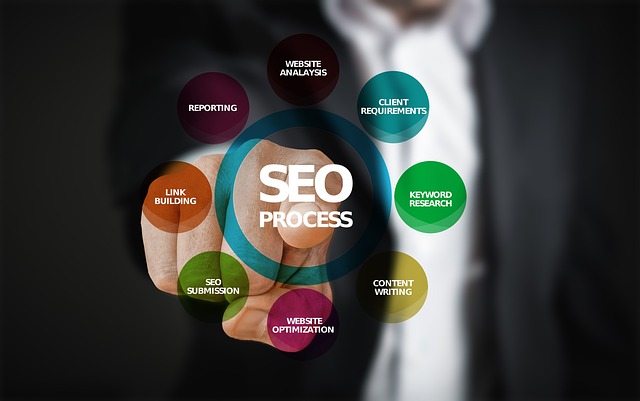AI has been making remarkable progress across different sectors, and the field of SEO is no different. With the continuous advancement of AI technology, it is on the brink of bringing about a revolutionary transformation in the realm of SEO. This transformation will reshape the functioning of search engines and redefine the methods through which businesses enhance their online visibility.
As someone with expertise in the field of SEO, I have been contemplating the various ways in which AI will impact this form of marketing. This article aims to provide information and insight regarding the potential effects of AI on SEO, the advantages it can offer, and the necessary adjustments for businesses in response to these changes. If you’re in the Hampshire area and need help with your SEO effort, check out the SEO agency Hampshire.
AI-Powered Search Algorithms
Search engines such as Google are built on complex algorithms that explore and categorise web pages, subsequently determining their ranking based on significance and credibility. By leveraging AI-powered algorithms, these processes have the potential to be significantly enhanced, resulting in more precise, tailored, and efficient search results.
AI integration in search algorithms, such as Google’s RankBrain, exemplifies the utilisation of machine learning to enhance user intent comprehension and provide more pertinent search outcomes. As AI progresses, we can anticipate search engines implementing similar technologies, resulting in improved accuracy in understanding user inquiries and delivering enhanced search results.
Refining Keyword Analysis and Enhancing Content Optimisation
Relevant keyword analysis and optimising content play vital roles in search engine optimisation (SEO). Utilising AI technology can streamline and enhance these processes by automating tasks, such as comprehending the semantic connections among keywords, recognising search patterns, and forecasting user behaviour.
AI-driven software can also aid in optimising content, guaranteeing its pertinence and appeal to users. Through the examination of user actions, AI can ascertain the most effective content and offer suggestions for enhancing it. Additionally, AI can assist in creating metadata tags, headings, and other on-page components that play a fundamental role in achieving SEO accomplishments.
Enhanced User Experience
User interaction is of utmost importance in optimising search engine rankings, as search engines prioritise websites that provide a smooth and effortless experience for their users. Artificial intelligence (AI) has the potential to enhance user interaction by examining user behaviour data, pinpointing areas that require improvement, and recommending tailored content suggestions.
AI has the ability to examine user preferences and offer personalised content suggestions, guaranteeing that users discover the desired content and spend more time on the website. Moreover, chatbots powered by AI can promptly assist visitors, enhancing customer satisfaction and engagement.
Predictive SEO
Predictive SEO refers to the utilisation of artificial intelligence (AI) in predicting upcoming trends, user actions, and updates in search engine algorithms. By harnessing the power of AI and machine learning, businesses can proactively anticipate changes and adjust their SEO strategies accordingly, ensuring they remain well-prepared and adaptable.
Predictive SEO has the potential to assist businesses in recognising emerging themes and developing content that resonates with their desired audience. Furthermore, it can aid businesses in the early detection of possible algorithm changes, enabling them to adapt their approaches and mitigate any adverse effects on their search result rankings.
Voice Search Optimisation
The proliferation of voice-based virtual assistants such as Amazon’s Alexa, Apple’s Siri, and Google Assistant has resulted in a notable surge in the usage of voice search inquiries. With the continuous advancement of artificial intelligence, the capabilities of voice recognition technology are expected to enhance further, establishing voice search as a crucial component of search engine optimisation (SEO).
To optimise for voice search, businesses will need to focus on natural language processing and long-tail keywords. AI can help analyse voice search queries, understand user intent, and provide insights into how businesses can optimise their content for voice search.
Visual Search Optimisation
AI will have a noteworthy influence in the field of visual search. Google Lens and Pinterest Lens are examples of platforms that allow users to conduct searches for products and information using images rather than text. Through the implementation of AI-driven image recognition technology, objects within images can be accurately identified, thereby simplifying the process of comprehending and categorising visual content for search engines.
In order to take advantage of visual search, businesses must prioritise optimising their images by adding appropriate metadata and ensuring that their visual content is readily accessible on their website. Artificial intelligence techniques can assist in analysing and enhancing images, simplifying the indexing process for search engines, and increasing the likelihood of achieving a higher rank in visual search results.
Conclusion
AI is unquestionably positioned to bring about a major transformation in the field of SEO. By harnessing the power of AI, businesses can expect to gain numerous advantages in terms of search algorithms, keyword research, and content optimisation. This will result in a more precise, tailored, and streamlined SEO environment. The progress made in AI technology also holds the potential to revolutionise user experience, predictive SEO, voice search optimisation, and visual search optimisation. As a result, businesses will undergo significant changes in the way they optimise and establish their online visibility.
In order to maintain a competitive edge, businesses need to embrace the advancements in AI and adjust their SEO strategies to capitalise on the advantages it offers. By utilising the capabilities of AI, businesses can not only keep up with the constantly changing digital landscape but also provide a smooth and captivating user experience. Moving forward, the incorporation of AI into SEO will play a pivotal role in shaping the future of search and online presence.

